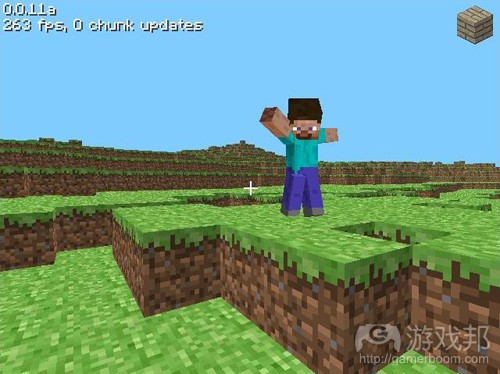关于独立开发者与发行商合作的几点建议
作者:Tom Buscaglia
当你将全部的精力投放到设计、编程和游戏的美工之时,殊不知自己却可能正陷入背动状态。Notch的《Minecraft》获得了成功,这引起了众人的关注。但是这些关注不只来源于游戏社区,还有一些生意暴徒。对他们而言,《Minecraft》不是款优秀的游戏,而是款强大的吸金工具。如果加以利用,必然能够给他们带来巨额资金。
剥削型发行商
首先我想说的是,有许多真正进行公正交易的发行商和经销商可以为你的游戏及最终工作室的成功做出贡献。但是还存在某些不入流的发行商,他们不提供任何帮助,只知道剥削那些不警惕的开发者。自《Minecraft》获得商业上的成功开始,我就认识到了这种情况。就像盯着腐肉在空中盘旋的秃鹫一般,这些所谓的发行合作者开始与独立开发者签约,为他们开启“友好的”门户甚至采用有着巨额奖励的竞争。
最终,这些人几乎没有付出任何东西,却有机会将你和你的游戏绑定在某种能让他们获利的关系上,但这并没有给开发者带来什么好处。通常这些所谓的发行协议让开发者负担某些义务,后者不仅无法从游戏销售中获得比例适当的盈利,其协议还允许发行商雇佣他人将游戏移植到其他平台上,而成本却最终分摊到开发者的盈利分成中。假如游戏能够获得成功,他们才会给你那份应得的盈利。
而且这些剥削者却根本不担心其中可能引发的一些问题。毕竟,你没有足够资金雇佣律师处理这种事情,而且他们也对这种情况了如指掌。所以,最好花时间去了解那些已经有跟某个发行商合作过的人(游戏邦注:通常发行商网站上都会有已经发布过的游戏列表),在你跟发行商形成联系之前先听听其他合作者的意见。
掌握IP控制权而不仅是所有权
独立开发者经常被告知,游戏真正长期的价值在于对IP的所有权。但是事实上,能够为你创造长期盈利的方法不只是对IP所有权。正是控制与持有IP相关的权利,为他们挖掘IP商业效益创造了便利。所以,那些发行商会在一开始就让你明白,他们对你的IP不感兴趣。他们会让你持有自己的IP,但是随后获得你后续控制或商业挖掘IP的所有权利。这些权利还包括你可能后续开发游戏续作的权利。所以,不仅你的游戏IP被绑定,整个工作室都被套牢了。而且,他们还会攫取周边商品带来的附属盈利,比如小雕像、T恤甚至是基于游戏的电影或电视内容。
清楚判断合作价值
我近期为某个考虑发行iOS/Android/PC游戏的开发者提供咨询服务。发行商向他们提供40%的盈利抽成,而最初商定的比例多达50%。而比例所指的是扣除营销等发行商成本后的净利润。我告诉他们,这似乎并不是个值得考虑的交易,并询问他们为何会考虑这桩交易。他们的回答是,他们自己不知道如何营销游戏,但是发行商承诺(游戏邦注:只是单纯的承诺,没有写成书面协定或任何有法律意义的形式)他们能够营销游戏并让其获得成功。但是他已经与发行商达成协议让游戏预装到某些Android平板电脑上,我看了下游戏,觉得这个项目应该也能够投入到Steam平台。
我看不出独立开发者需要与发行商就数字发行渠道进行合作的理由,因为多数开发者可直接同数字或无线门户网站进行合作。PC、iOS和Android游戏的自行发布也非常简单。如果你让发行商操办这件事情,而不是直接从销售方处获得盈利,最终你就只能得到部分盈利。在此类的交易中,整个过程看上去就像是发行商是自行赚取盈利而不是你付给他们酬劳。所以开发者不可达成此类交易。多花些时间思考,研究所有的选项,先尽量收集信息。
时刻注意市场走向
不要限制自己的选择范围。在花数月或数年时间专注开发游戏之后,开发者通常无法客观判断游戏成效或制定项目计划。通常情况下,他们甚至都没有关注近期的行业趋势或平台发展机遇。非凡的游戏设计师Daniel Cook近期在自己的文章中指出了这些问题。
制作绝妙的游戏固然很棒,但是如果你真正想以此为生而不是将游戏开发当成一项爱好,那么最好能够不时抬头看看市场态势。否则,你就有可能碰上上述的剥削者。如果你想做的事情只是开发游戏的话,那么他们也很乐意帮你销售游戏,双方各取所需,你做你游戏而他们通过你的游戏来赚钱。
更好的方法
那么,你应该做什么呢?首先,不要低估自己的谈判筹码。发行商通过销售游戏来谋生。如果没有你提供的东西,他们什么都得不到。当然,现在不乏迫切想与发行商进行合作的开发者,但是这并非需要你这样做的理由。想想看,如果你所有的朋友都跳悬崖,你难道也会跟着跳吗?此外,如果发行商对你的游戏感兴趣,可能这就意味着他们看到了其中存在的价值,你也应该看到这个价值。
记住,发行商最早提出的交易并非是种不准讨价还价,不干就拉倒的情况。虽然这是对发行商而言最好的交易,而且是讨论的开始。但是,这不应该是你最终达成的交易。如果他们给你提供的是对他们最为有利的交易,那么你应当回给他们对你最有利的交易。于是,讨论就此展开。像你关注游戏那样关注最佳交易。保留你自己的IP,但是也要坚持对IP的控制权。不要将你的游戏或工作室绑定在与某个发行商的关系上,要摆脱这种情况。比如,如果发行商需要在提前30天通知的情况下终止合同,那么你也应当提出同样的要求。权利的相互性以及交易的局限性是需要努力实现的目标。一旦你已经做出了最大的努力,就要决定这是否是值得达成的一项交易。如果你无法自行做决定,那么最好去寻求专业人士的帮助。乍看之下似乎会耗费你大笔的金钱,但是此举会让你最终从交易中获得更多的利益。
大胆否决
在你获得请求之时,要保持清醒的头脑。有发行商认为你的游戏有价值固然很棒,但是你要知道这其中可能存在陷阱。所以,在整个交易过程中都要耐心。愿意在谈判过程中花时间的一方总是能够占据上风。如果发行商希望能够很快地达成协议,那么这项交易肯定对你有不利之处。所以,不要让他们催促你达成交易,即便你自己也很着急,也要将整个谈判过程放缓。最终,你的付出会得到回报的。还有记住,如果你不敢说不,那么就无法同发行商进行有效的谈判。现实情况是,如果你达成的是对自己不利的交易,那么还不如没有交易。所以,大胆说不才是最佳的选择。(本文为游戏邦/gamerboom.com编译,如需转载请联系:游戏邦)
Hey Indie…Heads UP, You have a Target on Your Back!
Tom Buscaglia
While you have been buried deep in your design, code and art for your game, dark forces have been gathering – planning your enslavement. Notch’s success with Minecraft got a lot of attention. And not just from the gamer community but also from Ferengi type business goons. You see, to them Minecraft is not a great game, it is a potent financial engine that, if harnessed, could be filling their coffers with gold pressed latinum.
HERE COME THE BOTTOM FEEDERS
First, let me say this, there are many solid fair dealing publishers and distributors out there who can contribute to the success of your game and, more importantly, to your studio’s ultimate success. But there are also a slew of bottom feeders who offer nothing but exploitation to any unwary developer looking to get his passion project in the world. I started seeing this crop up around the same time that word got out on Minecraft’s financial success. Like circling vultures with the smell of death in their nostrils, these “so called” publishing partners began to sign up Indies, launch Indie “friendly” portals and even run contests with the big award being getting the privilege to get screwed as first prize.
Ultimately, these folks offer little but an opportunity to get yourself and your game locked into a relationship that benefits them and does little or nothing for the developer. Often these so called publishing agreements lock the developer into ongoing obligations that not only take a disproportionate share of revenue from sales, they also allow the publisher to hire others to port your game to other platforms, with the costs ultimately deducted from the developer’s share of revenue before they get anything, if, in fact they get anything from the ports. And this assumes that if the game is a success, they actually pay you your share of the revenue.
The simple fact is that this is often not the case with some of the more aggressive exploiters. After all, you won’t have the money to hire a lawyer to go after them…and they know it because they hold your purse strings. So, take the time to ask around with others who have published through them (there’s a list of the games published right on the publisher’s web site), other indies and anyone else you can think of who may have an honest opinion before you get into any relationships like this.
THERE IS MORE TO YOUR IP THAN KEEPING IT
Indies have been told that the real long term value in their game is in the ownership of the IP. But actually, it is not the mere ownership of the IP that creates long term value for you. It’s the control of the rights surrounding that ownership that facilitates the commercial exploitation of the IP. So, these good fellows will let you know right up front that they have no interest in owning your IP. Why should they when they can let you own it and then strip you of all the rights you might have to control or commercially exploit your IP going forward. They also commonly include rights to future games you may develop. So, not only is your game IP locked up, so is your studio. Heck, they even tie up ancillary revenue derived from the exploitation of merchandise like figurines, tee shirts and even future TV or film rights based on your game.
SOME DEALS ARE JUST NOT WORTH TAKING
I recently counseled a developer who was considering a publishing deal for his nearly finished iOS/Android/PC game. The publisher was offering them a 40% rev share which they had negotiated up to 50%. This would be from net revenue after the deduction of all of the publisher’s costs, including marketing. I told them it did not seem like a deal worth considering and asked why they were considering taking. Their response was that they were unsure if they could adequately market their game and the publisher was making promises (though not willing to put them in writing and any meaningful way) that they knew how to market the game to make it a success. But he already had a deal to have it pre-loaded on some Android tablets, and after I took a look at the game I thought it would be acceptable on Steam as well. Hardly a bad shot at success.
I see very few reasons why any Indie would sign a digital distribution deal with a publisher as most, if not all, of these can be done directly with the digital or wireless portals. PC, iOS and Android games can easily be self-published. If you let a publisher do it for you, instead of getting the net pay out from the distributor, you end up with a share of that. In deals like this make sure any rev share the publisher is actually earned by them, not just given to them because they are cleverer than you are. Don’t do a deal like this lightly. Think long and hard, learn you options and gather as much information you can first.
POKE YOUR HEAD UP ONCE IN A WHILE
So keep your options open. Often after months or years of having his or her head buried in their game it is not at all uncommon for a developer to have little or no objective ability to judge their game or to have a clue what to do once it’s done. Often they have not even been paying attention to recent industry trends or platform opportunities. Game designer extraordinaire, Daniel Cook, recently pointed many of these issues faced by Indies in his recent article Lessons Learned from the Indie Meatgrinder on Gamasutra which, if you have not already done so, you should give a hard read.
It’s great to make a cool game…but if you really want to do it for a living and not as a hobby, it’s a great idea to stick your head up once in a while to stay abreast of what’s going on in the marketplace. Otherwise, you’ll meet up with one of these bottom feeders. And if all you really want to do is make your game, fine. They will be more than happy to sell it for you.. Then both parties get what they want. ..you get to make your game and they get to make all the money.
A BETTER WAY
So, what should you do? Well, to start with, don’t underestimate your bargaining position. Publishers make a living by selling games. Without what you provide they have nothing. Sure there is no shortage of eager developers out there willing to sign just about anything…but that’s no reason for you to do it. Like mom said, “If all your friends jumped off a cliff would you?” Besides, if they are interested in your title it probably means that they see value in it, and so should you.
Remember, the initial proposed deal a publisher sends is never a take it or leave it situation. It is the best deal for them. It is a starting point of the discussion. But should not be the deal you end up with. If they send you their best deal you should tear into it and make it the best deal for you and send it back. That’s how the process works. Take the same level of care you put into your game into getting the best deal you can. Retain your IP, but also retail control of it going forward. Don’t lock your game or your studio into a relationship that goes sour; have an out. For example, if the publisher wants the right to terminate the contract on 30 days notice, ask for the same right. Mutuality of rights and as limited a deal as possible is the way to go…at least try for it. Once you have done the best you can, decide if it is a deal worth taking. And, if you can’t do it yourself, get professional help. It may seem like a lot of money. But, in the end you will get much more benefit from the deal than whatever you have to pay for the help of an industry savvy professional.
JUST SAY NO
Once you get an offer, don’t go all giddy. Sure it’s great to have a publisher think you game is worthwhile. But, you knew that, right? So, be patient in the process. The party willing to take time with the process of any negotiation almost always comes out on top. If a publisher tries to push you too fast, it’s a sure sign that they want to rush you into a bad deal. So, don’t let them rush you in the process, even if you’re in a hurry…slow it down. It will pay in the end. And remember, if you can’t say no, you can’t negotiate. The truth is that, ultimately, you may well be better of with no deal that with a bad deal. So, sometimes, it’s best to just say no.
I hope this helps some Indies to get that target off their back…and keep on making great games they love. Because that’s what it’s really about. (Source: Gamasutra)
上一篇:三种方法助游戏开发者缓解盗版问题









































 闽公网安备35020302001549号
闽公网安备35020302001549号